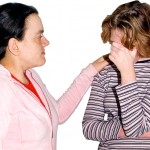
Disruptive behaviour problems (DPB) such as conduct problems or being oppositional and defiant affect a large proportion of young children. Many of these early behavioural problems predict negative outcomes such as underachieving at schools, future unemployment and criminal behaviour. Treatment of DPBs often begins during the school years once the condition is well-established, and when [read the full story…]










